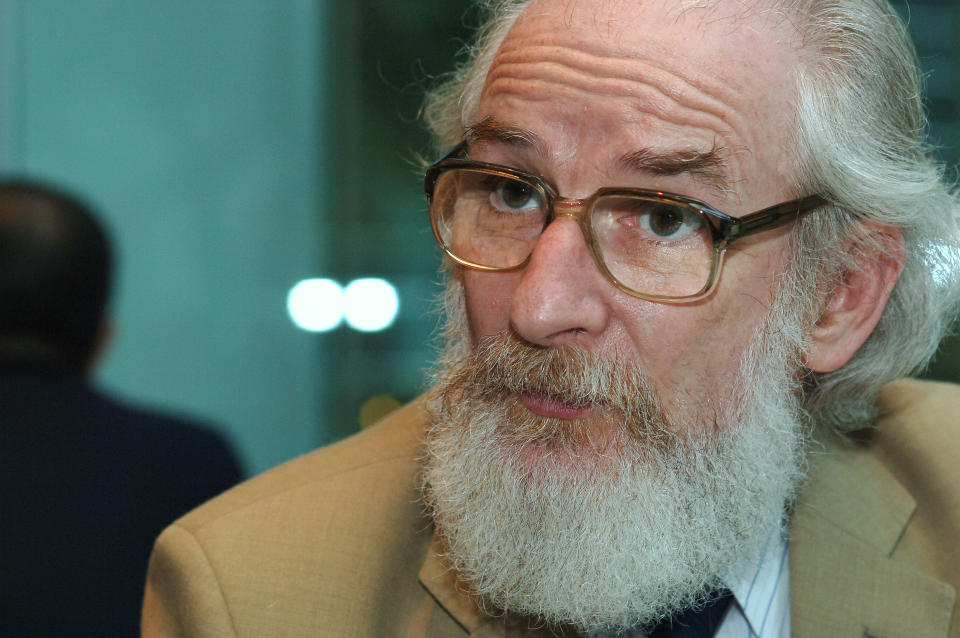Generation Z think full stops imply anger, language experts say

Teenagers and young people in their early 20s perceive the use of the full stop in text messages as negative, according to language experts.
Generation Z, defined as people born between the mid- to late 1990s and the early 2010s, have grown up with technology and often use short messages without full stops to communicate with one another, via SMS texts or online messaging services.
Language experts have been debating the changing use of the full stop for some years now and why young people have been said by some to interpret the punctuation mark as “intimidating”.
Professor David Crystal, author of the book Making A Point, says the full stop is redundant in SMS-like messages, as a text is ended by sending it, and a sentence therefore does not need to be finished with a full stop.
But, he said, the full stop is not always construed as “intimidating”, but merely carries “an emotional charge, which can be anything from mild to strong”.

He told Yahoo News: “It's a consequence of a trend to omit full stops at the end of statements in short messaging services.
“We've been dropping full stops in informal writing for centuries. And today...? Think Post-it notes on fridges. Or, more formally, newspaper headlines. Or many kinds of legal document.
“These are all special circumstances, and the SMS world is just the latest example.”
There is no danger of the full stop becoming defunct or unnecessary, he said.
“It doesn't affect any other variety of the language, so there's no risk of the full stop becoming defunct,” he said.
“That wouldn't happen, as punctuation is an essential means of making writing clear and easy to read.
Read more: New emoji scheduled for 2021 delayed by six months due to coronavirus
“But in SMS, where it's obvious that a sentence has come to an end, and there are no sentence sequences that need to be demarcated, it's really redundant.”
Discussing the debate, which originally appeared in The Telegraph, on BBC Radio 4, Prof Crystal gave the following example: if somebody texts you asking “are you going to the party” and then in a separate text says “Johnny will be there”, using a full stop in the second message changes the meaning and tone to something more “ominous”.
When asked whether he thought that the lack of use of punctuation in texts would lead to a misuse of correct punctuation, for example when applying for a job, he said young people need to learn this at school.

He added “People have been concerned about the teaching and learning of punctuation since the 18th century. Teachers of course are well aware of this issue.”
However, Chris McGovern, chair of the Campaign for Real Education, says that fads and fashions that de-skill young people “should be resisted”.
“There is a danger that overuse of short-cut text communication will erode an ability to write correctly in non-text situations,” he said. “Employers, for example, are unlikely to view favourably text messaging English.
Read more: Daters who use emojis have more sex, study reveals
“Young people should be encouraged to write and speak according to context and that includes a command of formal English.
“English has become the international language and it will be a sad day when native speakers are alone in being unable to cope with it writing it beyond text messaging abbreviations.”
This full stop debate has been ongoing since around 2015, when a study from Binghamton University in New York found that people who finish text messages with full stops – for example, “lol.” – are perceived as insincere.
Texts ending in an exclamation point – like “lmao!” – were deemed heartfelt or more profound.
At the beginning of August, internet linguist Gretchen McCulloch told the BBC that more and more people now see ending messages with a full stop as rude.
"If you're a young person and you're sending a message to someone, the default way to break up your thoughts is to send each thought as a new message," she said.
"Because the minimum thing necessary to send is the message itself, anything additional you include can take on an additional interpretation.”


